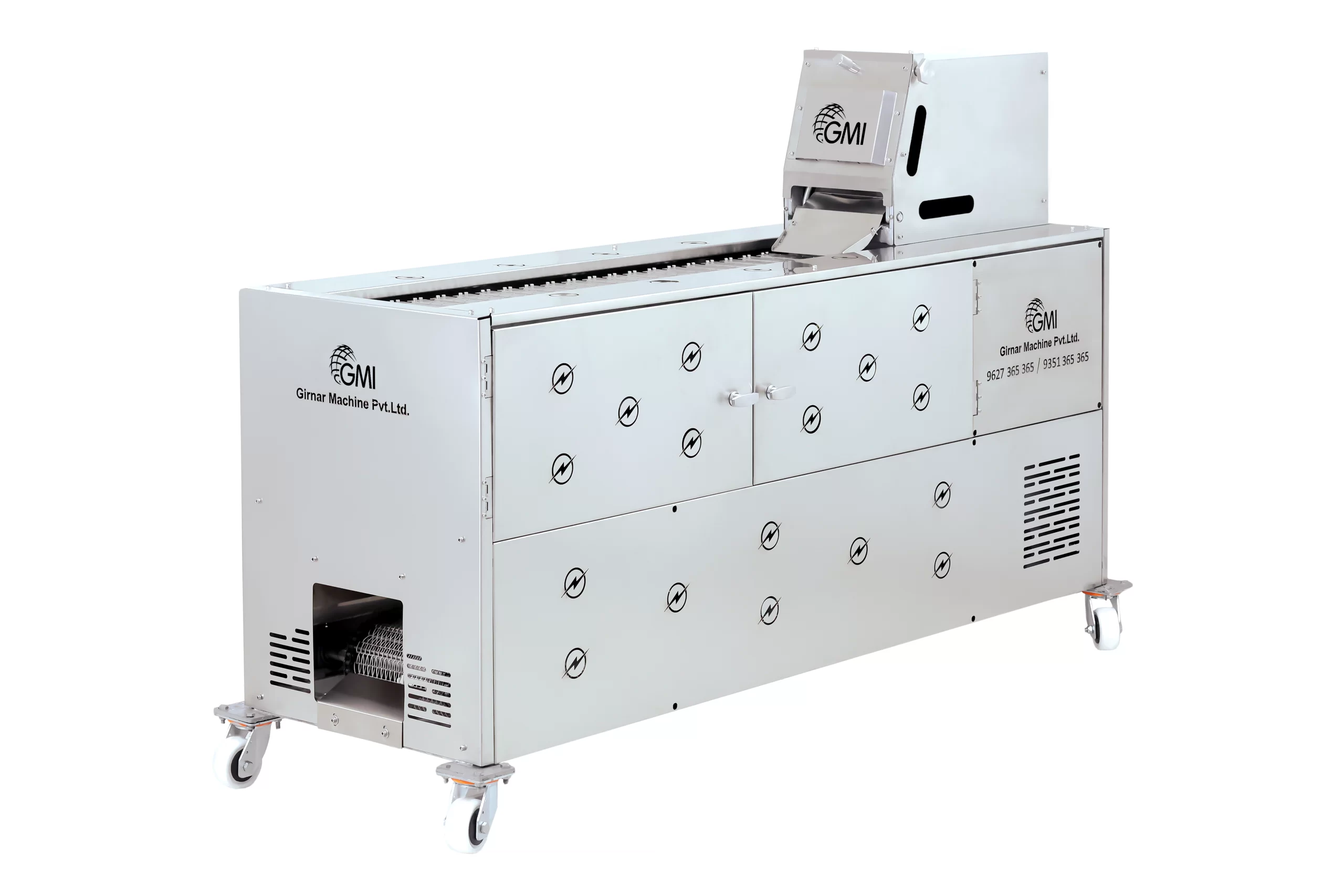Automatic Roti Maker Machine – Fully Electrical (600 Chapati / Hour)
Specifications |
|
| Production Capacity : | 600 Roti /hr |
| Size Of Roti : | 3” to 8” |
| Weight of Chapati : | 12 to 90 gram |
| Thickness of chapati : | 1.5 mm to 9 mm |
| Electrical Supply : | 440v (Three phase) |
| Electrical connection Load : | 50Amp (20Kw) |
| Electrical consumption : | 15 unit /hr |
| Chapati Baking : | Three Layer Technology |
| Power Safety : | Auto Cut Off Heater System |
| Roti Color & Appearance : | Light Brown |
| Overall Dimension : | 5′(L) x 2.4′(w) x 4.8′(H) |
| Weight of Machine : | 430 kg |
| All contact Parts & covers : | SS 304 |
| Roti Baking Conveyor : | SS 304 |
| Electric Motor : | ABB or Crompton |
| Electric wire : | RR Cable or Polycab |
| Gear Box : | Rotomotive or Varvel (made by Italy) |
| Electric Parts : | Siemens & L&T & Schneider |
| Electric safety : | Emergency Stop Button |
| Bearing : | SKF OR TIMKEN |
| Machine Movable : | YES (4” Castor Wheel) |

360° Chapati Baking
Existing chapati making machine design just focus on heating chapati from only two sides, making 1/3 part of chapati devoid of proper heat for baking. This leads of undercooked chapatis as burners only heat chapati from the top and bottom. Girnar’s unique 360˙ baking process- developed in-house ensures that heat spreads equally in the machine from all sides. The burners working on this process ensure perfectly roasted chapatis from all the sides, improving the overall quality of chapati.

Less Maintenance
Girnar’s automatic roti maker machine is extremely compact with fewer rotational parts compared to existing machines. This makes it easier to operate, clean and maintain. As the machine consists of very less number of moving parts, it also promises minimal noise and vibration during operations. With 50% less burners and electric parts and only one conveyor compared to three in conventional machines, the machine requires very less maintenance during the course of operations.
Chapati Making Machine
- Automatic Chapati Making Machine (1000 Chapati / Hour)
- Automatic Roti Making Machine (2000 Chapati / Hour)
- Semi Automatic Chapati Making Machine (600 Chapati / Hour)
- Automatic Chapati With Attached Dough Ball Making Machine (1000 Chapati / Hour)
- Automatic Roti Maker Machine – Fully Electrical (600 Chapati / Hour)
- Automatic Roti Pressing Machine (1000 Chapati / Hour)
- Automatic Dough Ball Cutting Machine (3000 Ball / Hour)
- Semi Automatic Roti Making Machine – Fully Electrical (1000 Chapati / Hour)
- Automatic Chapati Making Machine – Export Model (1000 Chapati / Hour)
- Chapati Making Machine – Export Model (600 Chapati / Hour)


